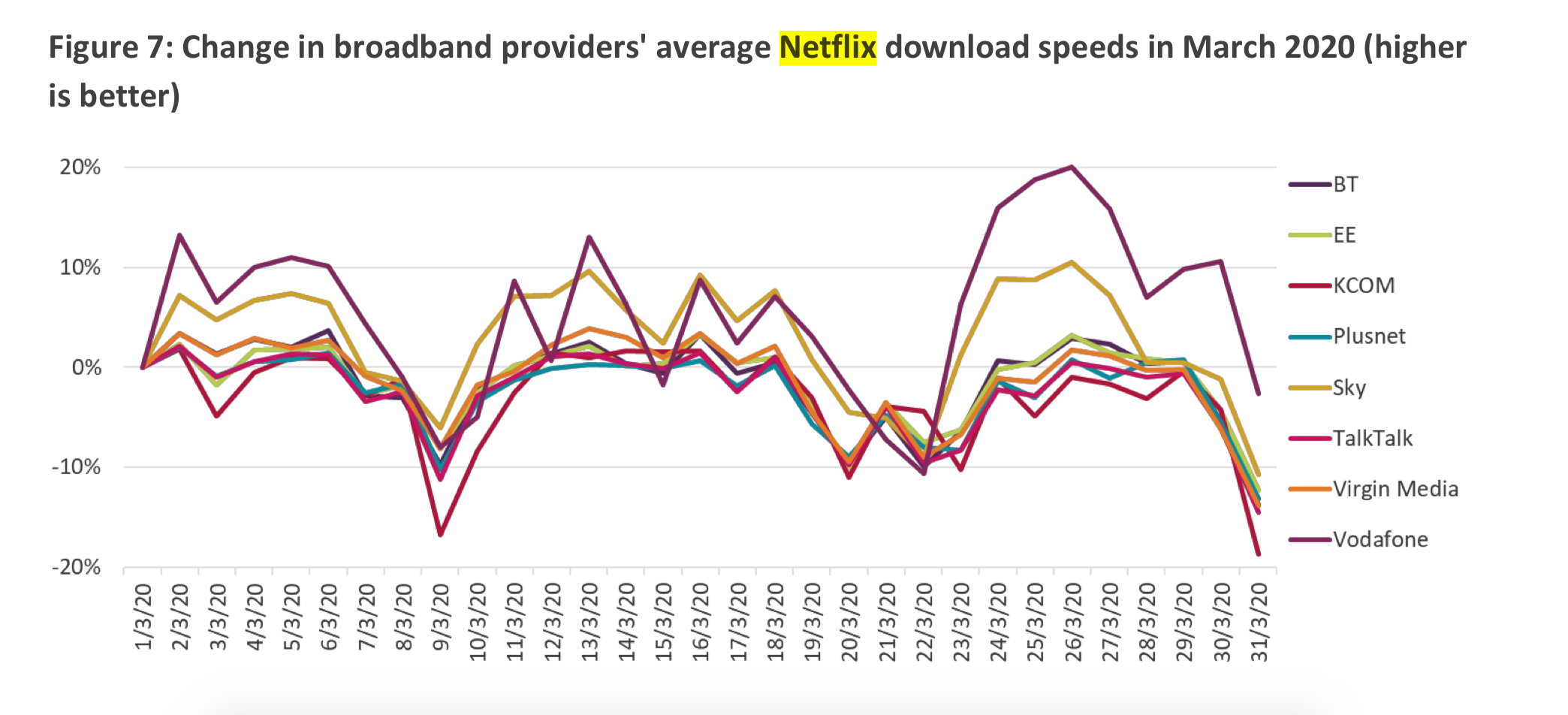UK broadband surviving lockdown binging – and has Netflix to thank

The UK’s internet service providers have coped well with the massive uptick in demand during the coronavirus lockdown.
Despite daytime broadband traffic rising by between 35% and 60% thanks to home working/schooling and increased use of streaming services, average speeds fell by just 2%.
Some networks were more affected than others, with Ofcom saying that Virgin Media subscribers saw speeds fall by up to 10% at certain points, compared with pre-lockdown data taken on March 1. However, because Virgin offers much faster speeds than many of its rivals, those customers may not have seen noticed the drop, Ofcom remarks.
It its report, Ofcom said: “Comparing performance during the first and last weeks of March 2020 (pre-and post-lockdown) we find that average download and upload speeds fell by 2% and 1% respectively, while delay (latency) was 2% higher (worse).”
Related: Best VPN 2020
As far as individual services are concerned, Netflix speeds fell by around 3%, from the first to the last week of March. That was mitigated by its decision to reduce the bitrate of its video streaming content in order to help broadband providers cope. Ofcom said this was significant.
You can see the change to Netflix’s video bandwidth demonstrated quite clearly in the graphic below:

“Almost all broadband providers saw a fall in the rate at which download speeds were declining on 23 March 2020, when Netflix started to reduce the streaming quality of its video content, a move that was aimed at reducing the pressure on broadband networks,” the report added.
Interestingly a 50GB update for Call of Duty: Modern Warfare that arrived on March 10 also saw a 14% fall in network speeds on one network.
Overall, Ofcom said the UK networks have held-up well despite unprecedented demand, so that’s something to be grateful for at least.
The regulator wrote: “Broadband in the UK has really been put to the test by the pandemic, so it’s encouraging that speeds have largely held up. This has helped people to keep working, learning and staying connected with friends and family.”
Overall, the picture is even brighter with average UK speeds rising year on year to 64Mbps, up from 54.2Mbps on the previous year. That’s an 18% improvement.


